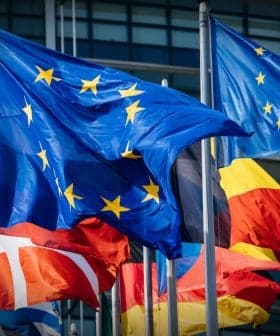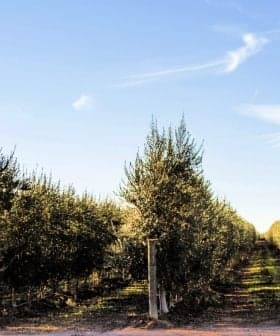E.U. Asks Global Community to Accelerate Energy Transition Ahead of COP27
The European Union officials believe that keeping global temperatures from exceeding pre-industrial levels by 1.5 ºC is still possible if all major actors double their efforts, as a unanimous vote of European environmental ministers called for a renewed, more robust, and shared climate action against global warming. The E.U. Council has also asked all COP27 participants to close the book on unabated coal, strengthen climate pledges, and support the Global Goal on Adaptation, emphasizing the importance of funding activities to address loss and damage associated with climate change.
The goal to keep the global temperatures from exceeding pre-industrial levels by 1.5 ºC is still possible, provided all major actors double their efforts, European Union officials said.
A unanimous vote of European environmental ministers has called for a renewed, more robust, and shared climate action against global warming. The 27-members block agreed that global climate pledges are far from sufficient.
Human-caused climate disruption is now damaging every region… We must invest equally in adaptation and resilience.
Therefore, they asked all countries to work swiftly as the 27th Conference of the Parties to the United Nations Framework Convention on Climate Change (COP27) approaches to present new nationally determined contributions.
More specifically, they called for wealthier countries to strengthen their climate pledges immediately.
See Also:Next Five Years Will Be Hotter than The Last Five, WMO SaysThe European Union is in the process of approving a complex and wide-ranging regulatory package known as Fit for 55, which requires member countries to reduce greenhouse gas emissions by 55 percent compared to 1990 levels before 2030.
Beyond that, a key goal is for the E.U. to become carbon neutral by 2050. The package is currently going through the legislative process and will not be approved before COP27 starts on November 6th.
The E.U. Council has also asked all COP27 participants “to close the book on unabated coal through a phase-down and ending inefficient fossil fuel subsidies to accelerate their energy transition, and to deliver on the Glasgow Climate Pact in a way that benefits workers and communities.”
The Glasgow Climate Pact was the result of COP26. The agreement focused on greenhouse gas emissions reduction and reducing coal use.
One of the crucial issues that will be debated at COP27 is the request of climate-vulnerable countries that developed nations contribute substantially to mitigate the impact of climate change.
The E.U. Council vote renewed “the strong commitment made by the E.U. and its member states to continue scaling up their international climate finance towards the developed countries’ goal of mobilizing at least $100 billion per year as soon as possible and through to 2025 from a wide variety of sources.”
In Glasgow, the E.U. and other wealthy nations agreed to invest that money in helping developing nations transition to greener economies and mitigate the impacts of climate change. However, most of these funds have not yet been deployed.
The E.U. Council has also voted to support the “Global Goal on Adaptation,” which will be one crucial issue at COP27. The ministers said the initiative “aims at enhancing adaptive capacity, strengthen resilience and reduce vulnerability to protect people, livelihoods and ecosystems.”
In this scenario, E.U. Council will support an early warning project launched by the United Nations General Secretary to provide everyone on Earth with an early warning system against extreme weather events.
According to the World Meteorological Organization, weather, climate or water-related disasters took place about once every day between 1970 and 2019, killing an average of 115 people and causing an average of $200 million in damages.
“Human-caused climate disruption is now damaging every region,” United Nations Secretary-General António Guterres said. “The most recent report of the Intergovernmental Panel on Climate Change details the suffering already happening.”
“Each increment of global warming will further increase the frequency and intensity of extreme weather events,” he added. “We must invest equally in adaptation and resilience. That includes the information that allows us to anticipate storms, heatwaves, floods and droughts.”
The E.U. Council also voted to support “the funding of activities for averting, minimizing and addressing loss and damage associated with the adverse effects of climate change.” The E.U. minister added that standing by the most vulnerable countries is essential.









